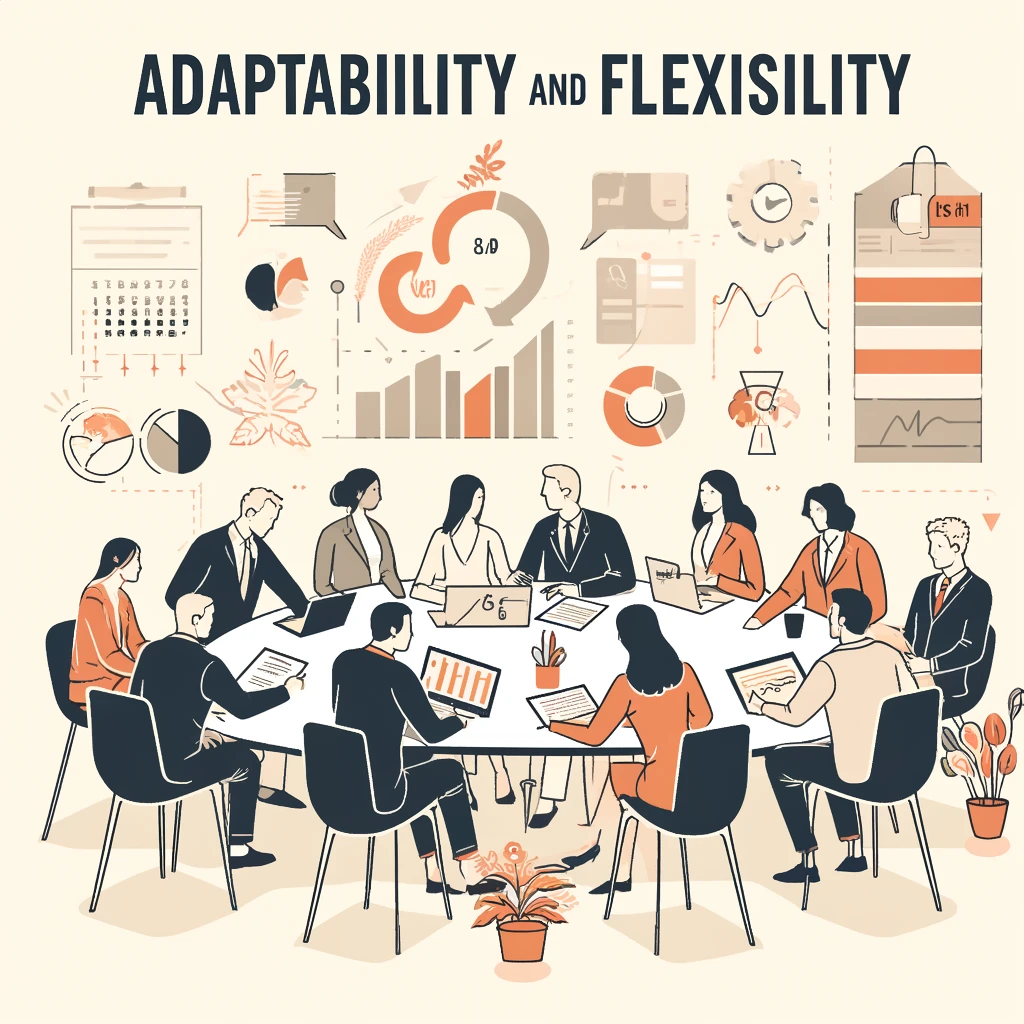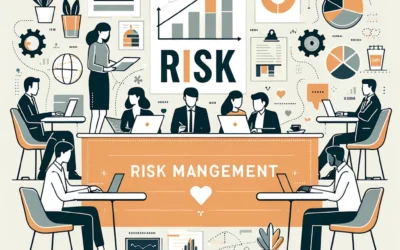Introduction
Adaptability and flexibility are crucial skills for project managers, enabling them to navigate the dynamic and often unpredictable nature of project environments. By mastering these skills, project managers can respond effectively to changes, manage unexpected challenges, and keep projects on track. This article explores the key adaptability and flexibility skills, processes, tools, and practical tips that every project manager should develop to handle the evolving demands of their role.
Understanding Adaptability and Flexibility in Project Management
Definition and Importance
Adaptability in project management refers to the ability to adjust strategies, processes, and approaches in response to changing circumstances. Flexibility complements adaptability by enabling project managers to shift priorities, manage resources dynamically, and embrace new methodologies or tools. Together, these skills ensure that project managers can handle uncertainty and keep projects aligned with their objectives.
Benefits of Being Adaptable and Flexible
Being adaptable and flexible offers numerous benefits, including improved problem-solving capabilities, enhanced team morale, and increased project success rates. Adaptable project managers can quickly identify and mitigate risks, while flexible managers can adjust plans and timelines to accommodate unforeseen changes. These skills also foster a culture of continuous improvement and innovation within the project team.
Impact of Poor Adaptability and Flexibility
Lack of adaptability and flexibility can lead to project delays, increased costs, and reduced team morale. Inflexible project managers may struggle to respond to changes, leading to missed opportunities and compromised project outcomes. Developing and honing these skills is essential for project managers to navigate the complexities of modern project environments and deliver successful outcomes.
Key Adaptability and Flexibility Skills for Project Managers
Change Management Skills
Change management skills are crucial for effectively navigating and implementing changes within a project. Project managers must be able to communicate changes clearly, manage stakeholder expectations, and ensure that the team is aligned with the new direction. This includes understanding the impact of changes and developing strategies to manage resistance and foster acceptance.
Problem-Solving Skills
Problem-solving skills are essential for adapting to new challenges and finding creative solutions. Project managers need to approach problems analytically, explore various options, and implement strategies that address the underlying issues. Effective problem-solving ensures that projects remain on track despite unexpected obstacles.
Decision-Making Skills
Effective decision-making is vital for managing adaptability and flexibility. Project managers must be able to evaluate various options, weigh the pros and cons, and make informed choices quickly. Good decision-making ensures that changes are implemented in a timely manner, minimising disruption to the project.
Emotional Intelligence
Emotional intelligence involves recognising, understanding, and managing one’s own emotions and the emotions of others. High emotional intelligence enables project managers to remain calm under pressure, build strong relationships, and handle conflicts constructively. This skill is essential for maintaining team morale and productivity during periods of change.
Communication Skills
Clear and concise communication is crucial for ensuring that all team members and stakeholders are aware of changes and understand their implications. Project managers must be able to articulate new directions, provide regular updates, and facilitate open dialogue. Effective communication helps in building trust and ensuring that everyone is on the same page.
Adaptability and Flexibility Process in Project Management
Identify the Need for Change
The first step in fostering adaptability and flexibility is to identify the need for change. Project managers should continuously monitor project progress, gather feedback from stakeholders, and stay informed about external factors that may impact the project. Early identification of potential changes allows for proactive planning and response.
Analyse the Impact of Change
Once a need for change is identified, the next step is to analyse its impact on the project. Project managers should consider how the change will affect project scope, timelines, resources, and stakeholder expectations. This analysis helps in developing an appropriate response strategy and preparing the team for the transition.
Develop a Change Management Plan
A comprehensive change management plan outlines the steps needed to implement changes effectively. This includes defining the change, identifying affected stakeholders, developing communication strategies, and planning for potential risks. A well-structured plan ensures that changes are managed smoothly and that all team members are aligned with the new direction.
Implement the Change
Implementing changes requires careful planning and execution. Project managers must ensure that all necessary resources are in place, assign responsibilities, and provide support to team members. Effective implementation also involves monitoring progress and making adjustments as needed. Clear communication and coordination with the team are essential for successful implementation.
Monitor and Review the Change
Adaptability and flexibility are ongoing processes that require continuous monitoring and review. Project managers should regularly assess the impact of changes, gather feedback from stakeholders, and make necessary adjustments. This continuous improvement approach ensures that the project remains aligned with its objectives and that any new challenges are addressed promptly.
Tools and Techniques for Enhancing Adaptability and Flexibility
Agile Methodologies
Agile methodologies, such as Scrum and Kanban, provide frameworks for managing projects in a flexible and adaptive manner. These methodologies emphasise iterative development, continuous feedback, and incremental improvements, making them ideal for dynamic project environments. Implementing agile practices helps project managers respond quickly to changes and deliver value consistently.
Risk Management Tools
Proactive risk management involves identifying potential risks before they occur and developing strategies to mitigate them. Tools such as risk registers, risk matrices, and contingency plans are essential for managing risks effectively. By anticipating and addressing potential risks early, project managers can maintain flexibility and adaptability throughout the project lifecycle.
Mind Mapping
Mind mapping is a visual tool that helps project managers organise and understand the relationships between different elements of a project. By creating a mind map, project managers can see the bigger picture, identify connections, and explore various options for adapting to changes. Mind mapping is useful for brainstorming solutions and structuring complex information.
SWOT Analysis
SWOT analysis is a strategic planning tool that assesses strengths, weaknesses, opportunities, and threats related to a project. By evaluating these four aspects, project managers can gain a comprehensive understanding of the project’s adaptability and flexibility. SWOT analysis helps in identifying areas for improvement and developing strategies to enhance adaptability.
Continuous Learning and Development
Continuous learning and development are essential for maintaining adaptability and flexibility. Project managers should regularly update their skills through training, workshops, and professional development opportunities. Staying current with best practices and emerging trends ensures that project managers are equipped to handle new challenges and changes effectively.
Practical Tips for Enhancing Adaptability and Flexibility
Stay Proactive
Proactive management involves anticipating potential changes and preparing for them in advance. By staying proactive, project managers can prevent issues from impacting the project’s progress and ensure that changes are managed effectively. Proactive management includes regular monitoring, risk assessment, and contingency planning.
Foster a Growth Mindset
A growth mindset encourages continuous learning and improvement. Project managers should foster a culture that values adaptability, embraces challenges, and views failures as opportunities for growth. This mindset helps teams remain flexible and open to new ideas and approaches.
Encourage Open Communication
Open communication is essential for fostering adaptability and flexibility. Project managers should create an environment where team members feel comfortable sharing ideas, feedback, and concerns. Encouraging open dialogue helps in identifying potential changes early and ensures that all team members are aligned with the project’s goals.
Build a Supportive Team Culture
A supportive team culture promotes collaboration, trust, and mutual respect. Project managers should focus on building strong relationships within the team, recognising achievements, and providing support during periods of change. A positive team culture enhances adaptability and flexibility by ensuring that team members are engaged and committed to the project’s success.
Embrace Technology and Innovation
Leveraging technology and innovation can enhance adaptability and flexibility in project management. Project managers should stay informed about new tools, software, and methodologies that can improve project efficiency and effectiveness. Embracing technological advancements helps project managers adapt to changes more easily and deliver better outcomes.
Conclusion
Mastering adaptability and flexibility skills is essential for project managers to navigate the dynamic and often unpredictable nature of project environments. By developing strong change management, problem-solving, decision-making, emotional intelligence, and communication skills, project managers can respond effectively to changes and keep projects on track. Implementing a structured adaptability and flexibility process and utilising tools such as agile methodologies, risk management tools, mind mapping, SWOT analysis, and continuous learning further enhances these skills. Continuous improvement and proactive management ensure that projects remain aligned with their objectives, ultimately contributing to project success.






0 Comments